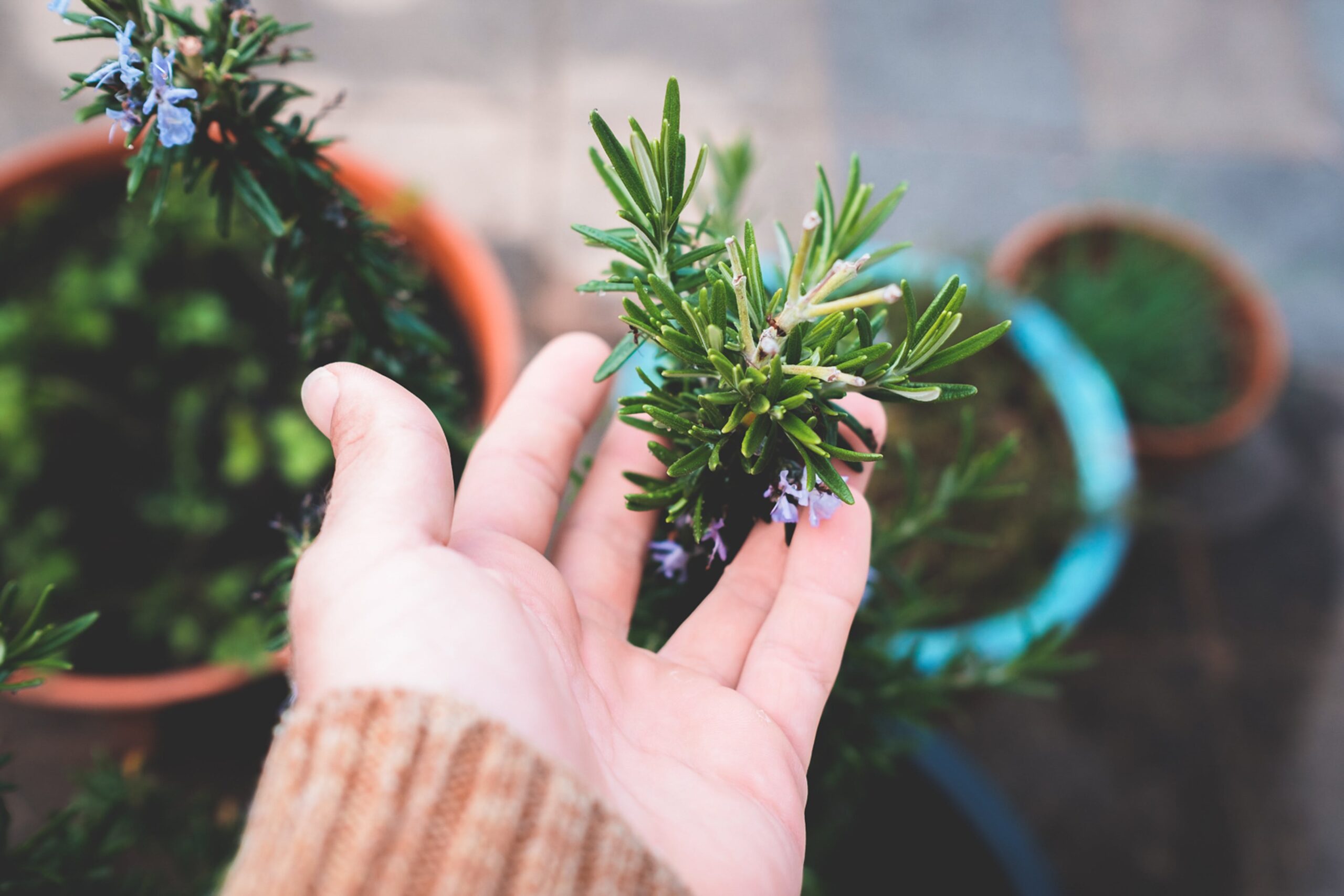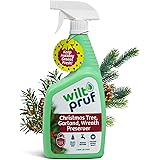Why should you keep rosemary by your garden gate? Because this humble herb has the power to elevate both the aesthetic and functionality of your garden space. Imagine stepping out into a fragrant oasis every time you enter or leave your home. With its vibrant green leaves and exquisite fragrance, rosemary adds a touch of elegance and tranquility to any garden.
But that’s not all – this versatile herb also offers a host of practical benefits, from repelling pests to enhancing the flavor of your favorite culinary creations. So, if you’re looking to maximize the beauty and utility of your garden, look no further than rosemary by your garden gate.
Why Should You Keep Rosemary by Your Garden Gate?
Rosemary, with its fragrant aroma and distinctive needle-like leaves, is not only a popular herb used in various cuisines but also a versatile plant that can enhance your garden in many ways. Placing rosemary by your garden gate can bring numerous benefits, both practical and aesthetic.
In this article, we will explore why rosemary is the perfect companion for your garden entrance, offering insights into its medicinal properties, pest repellent abilities, and its role in attracting beneficial pollinators.
So, let’s dive into the world of rosemary and discover why it deserves a prominent place by your garden gate.
Read More: About Grow Light Vs. Sad Light
The Medicinal Powers of Rosemary
Rosemary (Rosmarinus officinalis) has been esteemed for centuries due to its medicinal properties. The plant contains a variety of essential oils, antioxidants, and other compounds that contribute to its numerous health benefits.
By keeping rosemary by your garden gate, you’ll have easy access to these medicinal powers, allowing you to incorporate them into your daily life. Here are some of the key medicinal properties of rosemary:
- Enhances Memory and Focus:
Rosemary has long been associated with improved memory and cognitive function. Inhaling the aroma of rosemary essential oil has been shown to enhance concentration and mental clarity.
- Relieves Stress and Anxiety:
The scent of rosemary can have a calming effect on the mind and body, reducing stress and anxiety. It is often used in aromatherapy to promote relaxation.
- Boosts Immune System:
Rosemary is rich in antioxidants that help protect the body against damage from free radicals. These antioxidants are known to strengthen the immune system, keeping you healthy and resilient.
- Anti-inflammatory Properties:
The anti-inflammatory compounds in rosemary can help alleviate symptoms of inflammation, such as joint pain and muscle soreness.
- Aids Digestion:
Rosemary has traditionally been used to support digestion. Its essential oils stimulate the release of digestive enzymes, promoting efficient digestion and reducing bloating and gas.
- Respiratory Health:
Inhaling the steam from rosemary leaves can help clear congestion and relieve respiratory discomfort, making it beneficial for individuals with respiratory conditions.
Natural Pest Repellent
One of the significant advantages of keeping rosemary by your garden gate is its natural pest repellent properties. While we often appreciate the beauty and fragrance of flowers, many pests view our gardens as a buffet.
Fortunately, rosemary can help deter pests without the need for harsh chemicals. Here’s how rosemary can act as a natural pest repellent:
- Mosquitoes:
The strong scent of rosemary is known to repel mosquitoes. By placing rosemary plants near your garden gate, you can create a natural barrier against these bothersome insects.
- Flies:
Flies can be a nuisance, especially during outdoor gatherings. Rosemary’s fragrance can help keep flies at bay, allowing you to enjoy your garden without their constant presence.
- Moths:
Protecting your clothes and other fabrics from moths is essential. The scent of rosemary can deter moths, preventing damage to your belongings.
- Carrot Flies:
Carrot flies are a common pest that can wreak havoc on your vegetable garden. By placing rosemary near your garden gate, you can help deter these pests and protect your carrot crop.
Attracting Beneficial Pollinators
In addition to its pest-repellent properties, rosemary also attracts a variety of beneficial pollinators to your garden. These pollinators play a vital role in the reproduction of plants, ensuring a bountiful harvest and a flourishing ecosystem. By keeping rosemary by your garden gate, you can create an inviting environment for these beneficial insects. Here are some of the pollinators that rosemary can attract:
- Bees:
Bees are essential pollinators that facilitate the reproduction of numerous flowering plants. Rosemary’s vibrant purple flowers are particularly attractive to bees, making it an excellent plant for supporting their populations.
- Butterflies:
Watching butterflies gracefully flutter around your garden is a delight. Rosemary’s nectar-rich flowers can lure various butterfly species, adding beauty and charm to your outdoor space.
- Hoverflies:
Hoverflies are beneficial insects that consume aphids, mealybugs, and other garden pests. By attracting hoverflies to your garden with rosemary, you can naturally control pest populations and promote a healthy garden ecosystem.
- Hummingbirds:
If you reside in an area where hummingbirds frequent, adding rosemary near your garden gate can attract these fascinating birds. Hummingbirds are drawn to the vibrant flowers and can contribute to the cross-pollination of various plant species.
Companion Planting with Rosemary
Beyond its medicinal, pest-repellent, and pollinator-attracting properties, rosemary is also an excellent companion plant for many vegetables and herbs. Companion planting involves strategically placing plants together to enhance their growth, repel pests, and improve overall garden health. Here are some popular companion plants that thrive when planted alongside rosemary:
| Companion Plant | Benefits |
|---|---|
| Lavender | Both rosemary and lavender thrive in similar soil and sunlight conditions. Planting them together can create a visually appealing and aromatic corner of your garden. Additionally, lavender can attract pollinators, further supporting the health of your garden. |
| Sage | When planted near rosemary, sage can help deter pests such as cabbage moths and carrot flies. It also complements the flavor of rosemary in various culinary dishes. |
| Tomatoes | Rosemary’s pest-repellent properties can benefit tomatoes by deterring destructive insects like aphids and whiteflies. Additionally, rosemary’s presence may enhance the flavor of tomatoes. |
| Thyme | Thyme and rosemary share similar growth requirements and have complementary flavors. Planting them together can create a visually pleasing and fragrant herb garden. |
Caring for Rosemary by Your Garden Gate
To ensure that your rosemary thrives by your garden gate, it’s important to provide proper care and maintenance. Here are some essential tips for caring for your rosemary plant:
- Well-Drained Soil:
Rosemary prefers well-drained soil with a pH between 6.0 and 7.0. Ensure the soil does not become waterlogged to prevent root rot.
- Sunlight:
Place your rosemary plant in a sunny location where it can receive at least six hours of direct sunlight daily. This will help stimulate healthy growth and enhance the flavor of the leaves.
- Watering:
Rosemary is a drought-tolerant plant and prefers slightly dry conditions. Water only when the top inch of soil feels dry, and avoid overwatering.
- Pruning:
Regular pruning will help maintain the shape of the plant and encourage bushier growth. Prune after flowering or during the early spring to remove any dead or damaged branches.
- Winter Protection:
In colder regions, rosemary may need protection during the winter months. Consider mulching around the base of the plant to insulate the roots and cover the plant during frosty nights.
With these simple care instructions, your rosemary plant will thrive and continue to provide you with its wonderful benefits for years to come.
Keeping rosemary by your garden gate is a wise decision that offers numerous advantages. From its medicinal properties and natural pest-repellent abilities to attracting beneficial pollinators and serving as an excellent companion plant, rosemary truly earns its place by the entrance of your garden.
By incorporating rosemary into your outdoor space, you can enjoy its aromatic fragrance, enhance your well-being, and create a thriving garden ecosystem. So, unlock the potential of rosemary and elevate your gardening experience with this remarkable herb.
Read More: About How To Start A Vegetable Garden
Frequently Asked Questions (FAQs)
Rosemary has natural pest-repelling properties that can help keep insects away from your garden. Its strong scent acts as a deterrent for pests such as mosquitoes, flies, and moths.
Absolutely! Rosemary is a flavorful herb that can enhance the taste of various dishes, including meats, vegetables, and even baked goods. Its distinct aroma and pine-like flavor add depth and complexity to culinary creations.
Yes, rosemary has been used for centuries in traditional medicine. It is known to have anti-inflammatory, antioxidant, and antimicrobial properties. It may help improve digestion, boost memory, and promote overall well-being.
Rosemary essential oil is commonly used in aromatherapy due to its invigorating scent. It can help uplift mood, improve mental clarity, and reduce stress and fatigue. Simply inhaling rosemary oil can have a positive impact on your well-being.
Yes, rosemary is relatively easy to grow and maintain. It thrives in well-drained soil and requires full sun. Regular watering and occasional pruning to promote bushy growth are usually sufficient to keep rosemary healthy.
Yes, rosemary’s attractive flowers can attract beneficial wildlife such as bees and butterflies to your garden. These pollinators aid in the reproduction of plants, contributing to a vibrant and flourishing garden ecosystem.
Rosemary can be used in various ways in your home and daily life. You can incorporate it into your cooking, make infused oils or vinegars, create homemade cleaners with its antimicrobial properties, or even use it in DIY skincare products for its beneficial effects on the skin.
Final Thoughts
Rosemary is a versatile and beneficial herb to have near your garden gate. Its fragrant and evergreen nature adds charm to your outdoor space while simultaneously serving multiple purposes. With its culinary uses, rosemary can enhance the flavor of your dishes. Moreover, it possesses medicinal properties, aiding digestion and improving memory and concentration.
Additionally, rosemary acts as a natural pest repellent, keeping harmful insects away from your garden. So why should you keep rosemary by your garden gate? Because it is a practical and natural solution for a variety of needs, making it a valuable addition to any garden.
Auto Amazon Links: No products found.
Perfect Plants Christmas Tree Saver 8oz. | Easy Use Xmas Tree Preserver Food | Have Healthy Green Christmas Trees All Holiday Season
$13.99 (as of January 8, 2026 17:00 GMT +00:00 - More info- Product prices and availability are accurate as of the date/time indicated and are subject to change. Any price and availability information displayed on [relevant Amazon Site(s), as applicable] at the time of purchase will apply to the purchase of this product.
Wilt-Pruf® Christmas Tree/Cutting Preserver Spray |Preserves Christmas Trees, Wreaths, Garlands, Cuttings and Carved Pumpkins | Reduces Needle Drop | Keeps Cut Trees Fresh Longer | Natural (32 oz)
$21.99 (as of January 8, 2026 17:00 GMT +00:00 - More info- Product prices and availability are accurate as of the date/time indicated and are subject to change. Any price and availability information displayed on [relevant Amazon Site(s), as applicable] at the time of purchase will apply to the purchase of this product.
Rocky Mountain Goods Christmas Tree Food - 8 oz Tree Preservative - Reduce Needle Drop - Greener Scent - Fir, Pine, Spruce Trees - Extend Tree Life
$9.95 (as of January 8, 2026 17:00 GMT +00:00 - More info- Product prices and availability are accurate as of the date/time indicated and are subject to change. Any price and availability information displayed on [relevant Amazon Site(s), as applicable] at the time of purchase will apply to the purchase of this product.
HoHoHoH2o Automatic Christmas Tree Watering System Device, Santa’s Tree Helper Keeps Your Christmas Tree Healthy and Fresh, Refillable 2.5 gallons Capacity Box - Silver/Festive
$84.95 (as of January 8, 2026 17:00 GMT +00:00 - More info- Product prices and availability are accurate as of the date/time indicated and are subject to change. Any price and availability information displayed on [relevant Amazon Site(s), as applicable] at the time of purchase will apply to the purchase of this product.
FirEver Pure Christmas Tree Food | Preserver Additive & Season Extender for Live Xmas Trees | Keep It Green, Reduce Needle-Drop | Miracle Freshness (8 oz)
$16.66 (as of January 8, 2026 17:00 GMT +00:00 - More info- Product prices and availability are accurate as of the date/time indicated and are subject to change. Any price and availability information displayed on [relevant Amazon Site(s), as applicable] at the time of purchase will apply to the purchase of this product.
OLANLY Dog Door Mat for Muddy Paws 30x20, Absorbs Moisture and Dirt, Absorbent Non-Slip Washable Doormat, Quick Dry Chenille Mud Mat for Dogs, Entry Indoor Entryway Carpet for Inside Floor, Grey
$9.99 (as of January 5, 2026 18:53 GMT +00:00 - More info- Product prices and availability are accurate as of the date/time indicated and are subject to change. Any price and availability information displayed on [relevant Amazon Site(s), as applicable] at the time of purchase will apply to the purchase of this product.
TERRO Ant Killer Bait Stations T300B - Liquid Bait to Eliminate Ants - Bait System - 12 Count Stations for Effective Indoor Ant Control
$10.88 (as of January 5, 2026 18:53 GMT +00:00 - More info- Product prices and availability are accurate as of the date/time indicated and are subject to change. Any price and availability information displayed on [relevant Amazon Site(s), as applicable] at the time of purchase will apply to the purchase of this product.
Snow Joe Premium Enviro Blend Ice Melt, Green-Coated Deicer Crystals, 50 lb - Safer Melter for Vegetation, Concrete & Metals w/ Anti-Corrosion Calcium Magnesium Acetate
$32.97 (as of January 5, 2026 18:53 GMT +00:00 - More info- Product prices and availability are accurate as of the date/time indicated and are subject to change. Any price and availability information displayed on [relevant Amazon Site(s), as applicable] at the time of purchase will apply to the purchase of this product.
Zevo Flying Insect Trap Official Refill Cartridges - Fits Both Zevo Trap & MAX Indoor Fly Trap - Authentic Trap+Lock Technology to Catch Gnats, House & Fruit Flys (4 Official Refill Cartridges)
$14.82 (as of January 5, 2026 18:53 GMT +00:00 - More info- Product prices and availability are accurate as of the date/time indicated and are subject to change. Any price and availability information displayed on [relevant Amazon Site(s), as applicable] at the time of purchase will apply to the purchase of this product.
Advion Cockroach Gel Bait, 4 Tubes x 30-Grams, 1 Plunger and 2 Tips, German Roach Insect Pest Control, Indoor and Outdoor Use, Roach Killer Gel for American, German and Other Major Cockroach Species
$25.92 (as of January 5, 2026 18:53 GMT +00:00 - More info- Product prices and availability are accurate as of the date/time indicated and are subject to change. Any price and availability information displayed on [relevant Amazon Site(s), as applicable] at the time of purchase will apply to the purchase of this product.











